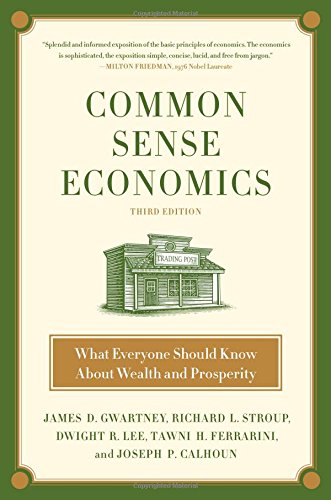
Common Sense Economics
Written By
-
Richard Stroup
- Senior Fellow Emeritus
Date
Topics
Related Content
-
The Endangered Species Act: Hotel California for Wildlife
This special episode of A Voice for Rural America explores how the ESA could be reformed to achieve better recovery outcomes for listed species.
-
Quibbling While the West Burns
In a world where bureaucracy moves slow and wildfires move fast, it’s little surprise that fire keeps winning.
-
Western Rangelands Are Overpopulated With Wild Horses. The East Can Help.
Easterners can offer a lifeline to wild horses, helping to rehabilitate Western ecosystems and ensure the well-being of these majestic animals.



